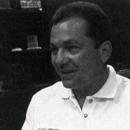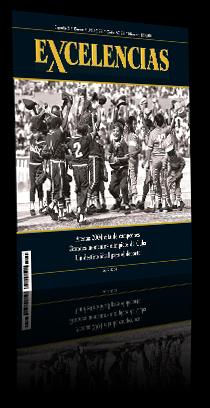Humberto Rodriguez González. “We’ll take the purest Olympic principles to Athens”
“Cuban sports move beyond muscle enhancement and physical competition; it also serves to cultivate cultural and human values that highlight its successes. The Cuban delegation will carry a message a peace, friendship and solidarity,” said Humberto Rodriguez Gonzalez, president of Cuba’s National Institute of Sports, Physical Education and Recreation (INDER is the acronym in Spanish), in an exclusive interview with Excellences magazine.
A young, well-built and jaunty-looking Mr. Rodriguez is convinced about the usefulness of sport activities as tools to strengthen ties and unity among peoples. The following excerpts contain the basic elements Mr. Rodriguez broached in the interview.
How has Cuba been training for the upcoming Olympic Games in Athens? Preparations began at the end of the 2000 Games in Sydney, where we finished among the top-ten countries, another proof that laid bare the tremendous world sport power that Cuba is. We grabbed 29 medals in Sydney; 11 gold medals, 11 silver medals and 7 bronze medals, and paved the way for diversification as we competed in some sports for the first time. Since then, we sketched out a program with new training methods and tailor-made aide to athletes. We’ve also strengthened ties among athletes, their trainers, their physical therapists, psychologists and relatives. That’s why we’ll be taking a hundred less athletes to Athens, but the ones that made the grade are better prepared and trained.
What will be Cuba’s greatest chances or best possibilities in Athens? All eyes are glued on the United States, Europe and, to a lesser degree, in Asia. Those are far-off nations that have put hurdles to our previous sport exchanges and have forced us to take on wiser training for this Olympic cycle, to make a more efficient use of our financial, human and material resources. On the other hand, we’ve seen better results in the sixteen sports we’ll be competing in Athens. We expect to achieve unprecedented success in certain disciplines, like diving, kayaking and cycling, coupled with the usual results we’ve always accomplished in boxing, baseball, women’s volleyball and judo, freestyle wrestling, and track and field. This diversity marks the kind of development we’ve attained.
Why does Cuba consider the success of Latin American, Caribbean and Third World athletes as its own? For Cuba’s sports movement is a great satisfaction to have dispatched trainers to over fifty countries around the world. That figure exceeds 5,000 experts. That means that many athletes competing for other countries are being coached by Cuban trainers. And that’s why we see their medals as our own. If these results are achieved by sportsmen and sportswomen from Latin America, the Caribbean and the Third World, then we wallow twice as much in those achievements because those are the medals of solidarity, friendship and humanity that Cuba fosters.
How is that Cuban aid to developing countries actually realized? Contributions are plentiful. For instance, there are some 1,300 students from 71 countries taking courses in our schools of sports, most of them hailing from Africa and Latin America. In addition to that, there are post-graduation courses in competition and high-performance results, as well as in sports medicine, rehabilitation, physical education and recreation.
Our physicians and therapists are working in several countries, too. We also provide assistance in anti-doping techniques –let’s remember that our Anti-Doping Lab is now internationally certified. We’ve also opened courses on sports management with consultations from different ministers and authorities from countries we’ve signed agreements with.
What are the most outstanding values of those Cuban athletes that will attend the Olympic Games in Athens? The Cuban delegation is made up of young athletes, averaging 24 years of age and many of them taking part in their first Olympics ever. In addition to their sport formation as athletes, we must underscore these youngsters’ human values and overall education. They also enjoy cultural activities, and that’s something we focus on strongly in an effort to make them better, more fully developed human beings.
For the oncoming school period, high-performing sportsmen will enroll in fifty different college courses. That’ll guarantee a future life for them after they retire from active sports. These athletes are also marked by their modesty, humbleness and moral commitment to their homeland because they carry the values that we Cubans are characterized by.




































